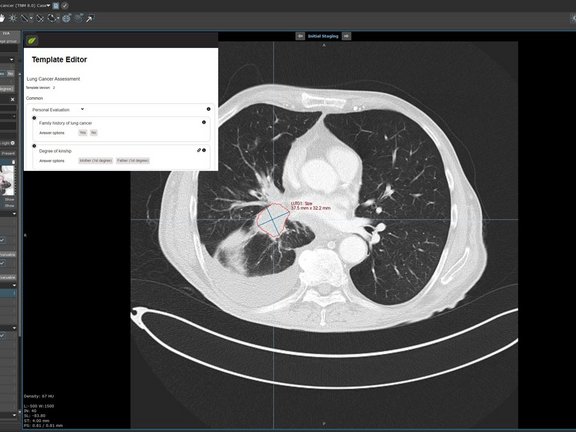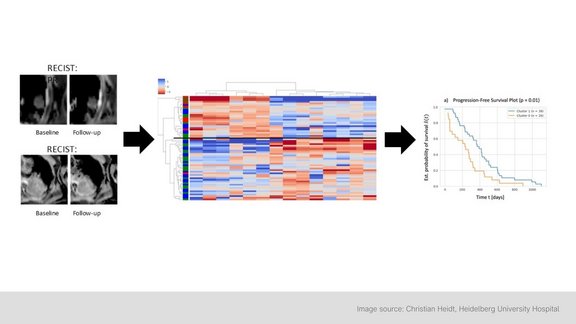We are thrilled to announce a forthcoming addition to mint Lesion™: the Template Editor. This feature will transform the way users interact with our platform by enabling them to create and adjust custom read templates. With the Template Editor, users can construct new templates, add questions or measurements to existing ones, or expand them by including additional criteria relevant to specific research projects. The user-friendly interface design empowers users to tailor templates to their unique requirements without the need for deep technical expertise, as the mint Lesion™ template engine provides a solid foundation for customization.
“Research projects in radiology require careful collection of specific structured data with and without image reference. In addition, diagnostic questions are often approached slightly differently depending on the healthcare institution. The web-based template editor enables users to create high-quality read templates with direct image reference or extend standard diagnostic templates. Template Editor offers mint Lesion™ users a high degree of flexibility in organizing their routine patient care as well as complex multi-centre research projects".
Mathias Seitel
Head of Product Management at Mint Medical GmbH
In practice, this means that users can define logic dependencies to show or skip questions based on criteria of a source question. Moreover, using existing criteria modules such as RECIST 1.1 as a basis, derivatives can be created by adding further questions that appear e.g. only for target or non-target lesions. Self-created templates can be downloaded and imported into further mint Lesion instances, which enables the modelling of multi-centre research projects on the basis of the same templates.
By simplifying the process of creating and adapting templates, we provide mint Lesion™ users with greater autonomy in organizing their work while ensuring structured collection of high-quality data. The Template Editor is anticipated to be accessible for mint Lesion™ users already this year. Our team is putting in a lot of effort to make it available as quickly as possible. Stay tuned for the release announcement!



